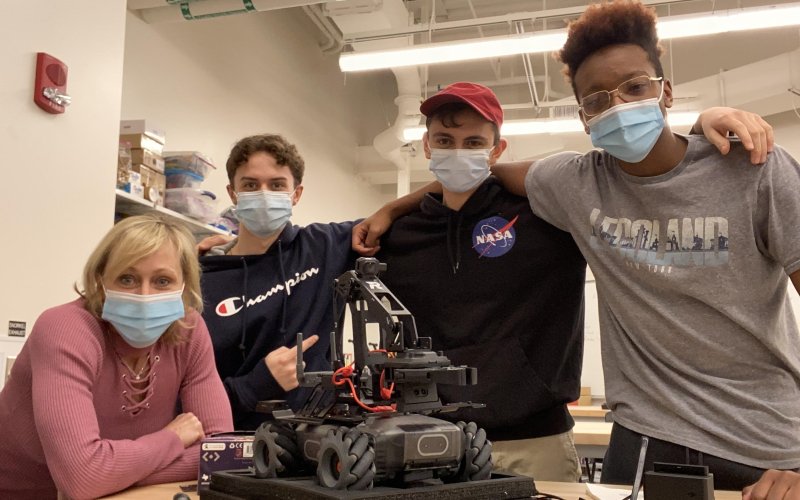5 Questions with Faculty: Marcie Fraser

ALBANY, N.Y. (Jan. 25, 2022) – Marcie Fraser joined the College of Emergency Preparedness, Homeland Security and Cybersecurity last fall as the new instructor for the Questar III BOCES New Visions: Emergency Preparedness, Informatics, Cyber and Homeland Security (EPICH) program.
The half-day program, located inside UAlbany’s new state-of-the-art ETEC building, offers high school seniors a unique opportunity to complete college-level courses, along with additional experiential learning components, that are directly applicable to a variety of career pathways in cybersecurity, homeland security and emergency preparedness.
Fraser started her career as a news reporter covering medical and fitness, transitioning to the New York State Department of Health as a health educator in emergency preparedness and as a supervisor for the New York State Contact Tracing Initiative/Department of Health. She has worked with state and local police departments, fire departments, emergency dispatch centers and conducted research among first responders to prevent and mitigate post-traumatic stress disorder.
Fraser is a double UAlbany alum with a master’s degree and a doctorate in public health.
Can you tell us more about EPICH?
This program introduces high school seniors to the necessary concepts and skills in emerging technologies and the use of data to anticipate natural and man-made disasters. The students are taking courses and learning beyond the classroom, including meeting with our expert faculty members, visiting intelligence hubs and building robots and drones. The EPICH Program provides experiential learning unlike any other program in the United States.
What drew you to the program?
Simply put, I am honored to be part of changing the future of our world, which begins with students. I am lucky to have the opportunity to teach students how to learn, preparing them for college and their professional careers.
What is something our campus community would be surprised to know about you?
I have an interest professionally in protecting those who protect us: first responders. I have conducted years of research on first responders. My research examines the relationship between exposure to violence with high-risk behaviors. I also run a business that combines stress management, nutrition and physical fitness. I am devoted to helping people develop healthy behaviors. I want people to live longer and better lives.
What is your favorite class to teach?
I love teaching on emergency preparedness, as much of my research is in this area. A focus on emergency preparedness, psychological first aid and resiliency prepares communities to be ready for natural or man-made disasters. It helps our communities be safer and I am dedicated to doing my part.
What advice do you have for students transitioning to the real world?
Reach out, connect and make calls. Experts are a phone call away. Don’t shy away from asking questions. Be flexible and look for opportunities in everything that comes your way, especially adversity. Adversity is an opportunity to grow, improve and emerge. Be a leader, and if there is no path, make one.




